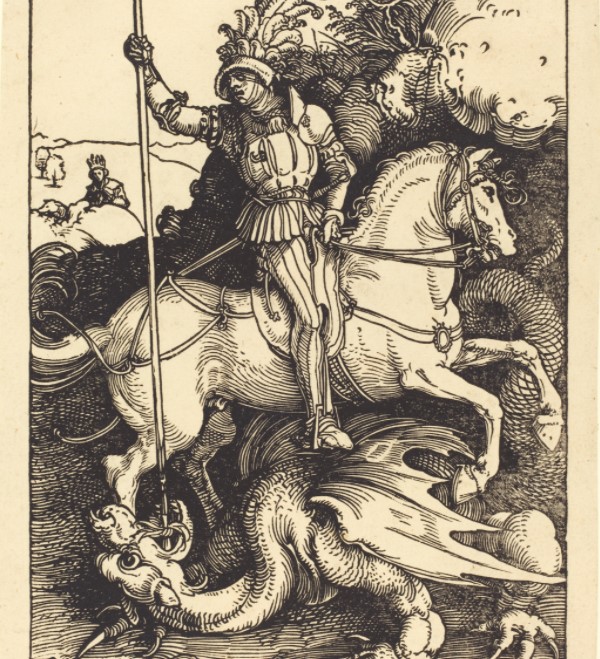The flag of St George flies high and proud to celebrate the patron saint of England as the hero who slayed the dragon is marked today.
And, as he is not just the patron saint for England, people in Aragon, Catalonia, Georgia, Lithuania, Palestine, Portugal, Germany, Greece, Moscow, Istanbul, Genoa and Venice are all also marking the Day with their own acknowledging his place in their own respecteve histories. Said to have born in Cappadocia - an area which is now in Turkey, very little is actually known about St George with plenty of stories about him that are full of myth and legend.
Living during the 3rd Century, his parents were Christians and, after his father died, his mother took George to live in the Middle East, where she was originally from. He became a Roman soldier but protested against how Rome treated Christian people badly.
He was put in prison and tortured because of this, but he refused to turn away from his religious beliefs before he was eventually executed.
It is said that the Roman Emperor's wife was so impressed by how George did not give up his faith that she became a Christian too. It is also believed that she was executed in the same way George had been.
Earliest recording of the saint slaying a dragon dates around the 11th century, but only became popular knowledge in the 15th century, when it was printed in a book called The Golden Legend.
Although some people have actually campaigned for St Edmund to be the patron of England, as they believe he is more English and more suitable for the title, the country's patron saint has not been changed - as St George remains thw patron saint of Engand.

















